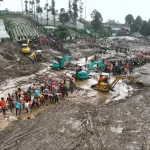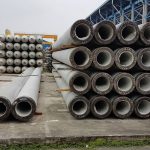Did you know that 66.7% of fires in Indonesia are caused by electrical short circuits? This fact isn’t just a figure; it’s a warning sign that property owners, business owners, and commercial building managers must heed. Fires can occur at any time, even in the safest of places, threatening billions of rupiah in investments.
Beyond just the loss of physical assets, fire can paralyze business operations, destroy a company’s reputation, and cause profound trauma for both employees and occupants. This is where fire and property insurance become crucial, providing a concrete step to protect your investments from unpredictable risks.
This article will thoroughly examine why electrical short circuits are a dominant cause of fires, their financial impact, and the fire risk management strategies that should be implemented. We’ll review comprehensive property insurance protection solutions, supported by professional insurance brokers. As a wise first step, ensure your property or business has comprehensive protection before the risk arises. Therefore, Contact L&G Insurance Broker now at 08118507773 For a free consultation before any risk occurs, our team of experts is ready to help you find the best protection solution for your needs and risk profile.
Why Do 66.7% of Fires Start from Electrical Short Circuits?
Electrical short circuits are a major cause of fires because many buildings in Indonesia still use substandard or outdated electrical installations. This problem is exacerbated by several key factors:
- Old and Worn Cables: Electrical cables have a lifespan. As they age, cable insulation hardens and cracks, increasing the risk of direct contact between wires (short circuits).
- Overloading: Using multiple plugs or excessive parallel connections on a single power source can cause overheating.
- Inadequate Safety System: Many old buildings still use standard fuses or MCBs which do not function optimally to cut off the current when a short circuit occurs.
- Negligence and Modifications: Modifications to electrical installations by uncertified technicians and makeshift repairs are often hidden time bombs.
Data from the Fire and Rescue Department shows that nearly two-thirds of all fires in urban areas are caused by electrical system failures. Ironically, this could have been prevented with regular inspections and adherence to national electrical installation standards.
Economic and Social Impacts of Fires Caused by Short Circuits
Fires caused by electrical short circuits cause losses that are not only material, but also social and psychological.
- Huge Financial Losses: For business owners, fire can mean huge financial losses, loss of stock, damaged equipment, and even loss of customers due to operational downtime.
- Supply Chain Disruption: If a factory or logistics warehouse experiences a major fire, production will come to a complete halt. Every day without activity means lost revenue and a damaged reputation with clients.
- Social and Infrastructure Impacts: Surrounding communities are also affected. Thick smoke can be hazardous to health, and public infrastructure such as roads and power lines can be disrupted by large fires.
- Business Interruption Losses: The loss of income during the post-fire recovery process is often much greater than the value of the burned building.
In other words, fire is not just an individual disaster, but also a social and economic one. Therefore, having fire insurance is not an additional expense, but rather a crucial investment in protection to ensure business continuity and peace of mind.
Risk Management: Strategic Steps Before It’s Too Late
Fire risk management isn’t just about installing fire extinguishers or conducting emergency drills. It requires a systematic and ongoing approach to addressing the high risk of electrical short circuits.
Here are some important steps that property and business owners should take:
- Periodic Electrical Audit (Preventive Check): Ensure all electrical installations and panels are inspected at least once a year by a certified technician (professionalism is vital).
- Load Separation: Avoid overloading a single circuit. Separate high loads (air conditioning, production machinery) from low loads.
- Employee Training (Fire Drill): Education on the use of fire extinguishers and emergency evacuation procedures is essential, especially for industrial and office areas.
- Environmental Monitoring: Avoid stacking flammable materials around electrical source areas (electrical panels, outlets, server rooms).
- Early Detection and Alarm Systems: Use smoke detectors and fire alarms that are active and regularly tested.
- Financial Protection (Risk Transfer): Have a fire insurance policy as a financial back-up if the risk still occurs.
Good risk management not only reduces the likelihood of a fire, but also minimizes the impact if an incident cannot be avoided.
As part of a comprehensive protection strategy, Contact L&G Insurance Broker now at 08118507773 For a free consultation before any risk occurs, get professional guidance to assess potential hazards on your property and recommendations on the most appropriate type of insurance.
Hidden Risks: Why Standard Insurance Isn’t Enough
One of the main reasons why fire continues to be a financial threat is because many property owners are unprepared for their policy coverage. Standard insurance often only covers certain risks (Named Perils), leaving many gaps in protection.
- Basic Policy Limitations: Many fire insurance policies only cover physical losses resulting from fire, lightning, or explosions. They do not cover indirect losses such as downtime or damage from smoke and water suppression efforts.
- Underinsurance: Many property owners insure their buildings below market value or rebuilding cost. When a claim is filed, the compensation received is only a fraction of the actual loss.
- Negligence Exclusion: Some policies may deny a claim if the fire is proven to have been caused by systematic negligence in electrical maintenance.
When a fire does occur, the losses are often far greater than anticipated. The costs of building repairs, machinery replacement, and lost income can’t be covered by personal savings alone. This is why you need comprehensive property insurance.
Types of Insurance Relevant for Fire Risk
In the context of fire protection, there are several types of insurance to consider, and an insurance broker will help you put together the combination:
- Fire Insurance: Protects buildings and their contents from the risks of fire, lightning, explosions, falling aircraft, and smoke (standard coverage).
- Property All Risks (PAR Insurance): Provides broader protection than Fire Insurance, including additional risks such as flood, earthquake (with extension), or sabotage (total asset protection).
- Business Interruption Insurance (BI): Covers losses due to the interruption of business operations following a fire (loss of income).
- Equipment and Machinery Breakdown (MB) Insurance: Protects production machinery or critical equipment damaged by fire or overheating (very important for factories and data centers).
- Public Liability Insurance: Protects property owners from third-party lawsuits resulting from property damage in the vicinity of a fire.
By choosing the right combination of insurance products, you not only protect your physical assets, but also your overall business sustainability.
The Important Role of Insurance Brokers in Controlling Short Circuit Risks
Why do you need an insurance broker? Because the risk of electrical short circuits, which reaches 66.7%, requires specialized expertise in policy design. As a professional insurance broker in South Tangerang, L&G Insurance Broker plays a vital role:
- In-depth Short Circuit Risk Analysis: L&G conducts a risk audit to assess the quality of electrical installations and the potential for fire in your property (non-physical prevention measures).
- Proper Policy Wording: Brokers ensure your policy covers losses due to short circuits and overheating (an often overlooked extension).
- Insurance Value Negotiation: L&G helps calculate accurate Replacement Cost to avoid underinsurance and inadequate compensation.
- Total Claims Assistance: If a fire occurs, the broker ensures complete documentation and a swift and transparent claims process, minimizing the financial impact on the company’s cash flow.
We understand that every business has unique risk characteristics. Therefore, L&G helps you with everything from risk identification to claims assistance in the event of a fire.
Case Studies and Practical Reviews of Business Recovery
A garment factory in West Java burned down due to an electrical short circuit in the packing room. Losses to assets and stock reached Rp 15 billion. Without insurance, the business would have been bankrupt.
However, because the factory owners had a Property All Risks with Business Interruption policy arranged by an insurance broker, they managed to:
- Received physical claims (property and machinery) worth IDR 14.5 billion.
- Accepted a Business Interruption claim that covers lost profits for 8 months of recovery and fixed operational costs (employee salaries).
This case demonstrates that fire insurance is a life-saving investment that ensures business continuity. Insurance transforms catastrophic losses into opportunities for planned and rapid recovery.
Don’t wait until disaster strikes to realize the importance of financial protection. Contact L&G Insurance Broker now at 08118507773 For a free consultation before any risk occurs, L&G is a trusted insurance broker in South Tangerang specializing in property and fire insurance.
Conclusion
The shocking fact that 66.7% of fires in Indonesia are caused by electrical short circuits should be a serious warning to every property owner and business owner. This fire risk, often triggered by negligent installation and excessive electricity usage, poses the greatest financial threat to business assets and operations. The resulting losses are multi-layered, including the destruction of physical assets, loss of inventory, and massive indirect losses due to business interruption (downtime). Without comprehensive property insurance, these losses can cripple a company’s financial stability and end years of business development.
Effective fire risk management requires more than just physical precautions. It requires strategic financial risk transfer through fire and Property All Risks (PAR) insurance, which specifically covers short circuit risks, as well as extended Business Interruption coverage. L&G Insurance Brokers play a vital role as the last line of protection. With specialized expertise in electrical risk analysis and policy negotiation with leading insurance companies, L&G ensures clients’ policies are tailored to their needs, cover the full replacement value of assets, and ensure a swift and transparent claims process when disaster strikes.
Located in South Tangerang and with decades of experience, L&G Insurance Broker is ready to be your strategic partner in protecting your business from fire risks. We provide comprehensive protection solutions that are cost-effective and provide maximum benefits. Don’t delay protecting your assets. Fire risk is a certainty that can only be managed with proactive measures and reliable financial protection. Take wise action now.
—
DON’T WASTE YOUR TIME AND SECURE YOUR FINANCIAL AND BUSINESS WITH THE RIGHT INSURANCE.
HOTLINE L&G 24 JAM: 0811-8507-773(CALL – WHATSAPP – SMS)
Website: lngrisk.co.id
Email: halo@lngrisk.co.id
—














